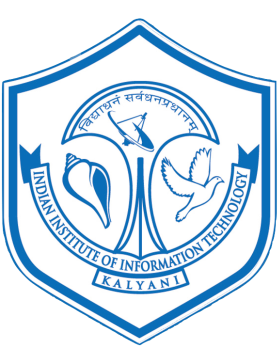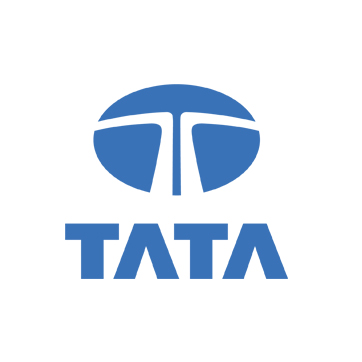Overview
Establishing an NGO in India involves choosing the right legal structure, such as a Trust, Society, or Section 8 Company, each offering distinct advantages based on your organizational goals. A Trust is generally formed for charitable or religious purposes, a Society is ideal for a group of individuals working towards a common objective, and a Section 8 Company is perfect for non-profit activities with a corporate structure. The registration process involves complying with various legal requirements, including documentation, drafting legal instruments, and filing with relevant authorities. Legal Corner provides comprehensive services to help you navigate the complexities of NGO registration, ensuring that your organization is set up legally, efficiently, and in line with your mission.
Eligibility
- Trust Registration:
A Trust can be registered by at least two trustees, typically for charitable, religious, or educational purposes. The founder, known as the settlor, transfers property or assets to the trust, which is managed by the trustees for the benefit of the beneficiaries. - Society Registration:
A Society requires a minimum of seven members who come together for a common purpose, such as promoting art, science, culture, or social welfare. The Society must be registered under the Societies Registration Act, 1860. - Section 8 Company Registration:
A Section 8 Company can be formed by two or more individuals or entities with the objective of promoting non-profit activities like education, charity, or environmental protection. It requires approval from the Registrar of Companies (RoC) and must comply with the Companies Act, 2013. - Documentary Requirements:
Each structure requires specific documentation, such as the Memorandum of Association (MoA), Articles of Association (AoA), Trust Deed, or Bye-laws. Legal Corner ensures all documentation is prepared accurately and in compliance with legal standards. - Compliance with Regulatory Bodies:
The registration process must comply with the requirements of various regulatory bodies, including the RoC for Section 8 Companies, the Registrar of Societies for Societies, and the local authority for Trusts. Legal Corner assists in ensuring full compliance.
Benefits
- Tax Exemptions:
NGOs registered as Trusts, Societies, or Section 8 Companies may be eligible for various tax exemptions under the Income Tax Act, such as Section 12A and 80G, which can significantly reduce the financial burden on the organization. - Credibility and Recognition:
A registered NGO enjoys greater credibility and recognition, making it easier to secure funding, donations, and support from government bodies, corporations, and the public. This recognition is crucial for the sustainability of the organization. - Legal Identity and Perpetual Succession:
Registration gives the NGO a distinct legal identity, allowing it to enter into contracts, own property, and sue or be sued in its name. It also ensures perpetual succession, meaning the organization continues to exist even if the founders or members change. - Access to Government Grants and CSR Funds:
Registered NGOs are eligible to apply for government grants, foreign contributions, and Corporate Social Responsibility (CSR) funds from companies, which can provide vital financial support for the organization’s activities. - Structured Governance and Accountability:
NGOs registered under these frameworks must adhere to specific governance standards, including regular board meetings, financial audits, and annual filings. This structure enhances transparency and accountability, building trust with stakeholders.
Procedure
- Choose the Appropriate Structure:
Legal Corner helps you choose the best legal structure for your NGO based on your objectives, size, and operational needs. We provide expert advice on whether a Trust, Society, or Section 8 Company is the most suitable option. - Drafting of Legal Documents:
We assist in drafting the necessary legal documents, such as the Trust Deed, Memorandum of Association (MoA), Articles of Association (AoA), and Bye-laws. These documents form the foundation of your NGO’s legal framework. - Filing with the Relevant Authorities:
Legal Corner manages the entire filing process, ensuring that all documents are submitted to the appropriate regulatory bodies, such as the RoC for Section 8 Companies or the Registrar of Societies for Societies, in a timely and accurate manner. - Obtaining Approvals and Registration Certificate:
We liaise with government authorities to obtain the necessary approvals for your NGO. Once the registration is complete, we ensure that you receive the official registration certificate, allowing your NGO to operate legally. - Post-Registration Compliance Support:
After registration, Legal Corner provides ongoing support to help your NGO meet its compliance obligations, including tax registrations, filing annual returns, and maintaining proper governance practices. This ensures your NGO remains compliant and operational.
Why Legal Corner
- Proven Success in the Non-Profit Sector:
With a proven track record of successfully registering NGOs across various sectors, Legal Corner is a trusted partner for non-profit organizations. Our expertise and dedication to client satisfaction set us apart as leaders in NGO registration services. - Expertise in NGO Registration:
Legal Corner has extensive experience in registering Trusts, Societies, and Section 8 Companies, ensuring that your NGO is set up legally and efficiently. Our deep understanding of the regulatory landscape helps streamline the registration process. - Tailored Solutions for Non-Profits:
We recognize that every NGO is unique, with specific goals and needs. Legal Corner provides customized solutions that align with your mission, ensuring that your organization’s legal structure supports its objectives and long-term sustainability. - Comprehensive Support Throughout the Process:
From selecting the appropriate legal structure to handling all filings and compliance requirements, Legal Corner offers end-to-end support for NGO registration. Our proactive approach ensures a smooth and hassle-free experience. - Commitment to Compliance and Transparency:
Legal Corner is committed to maintaining the highest standards of compliance and transparency. We ensure that all legal requirements are met, providing peace of mind that your NGO is legally sound and ready to operate.












